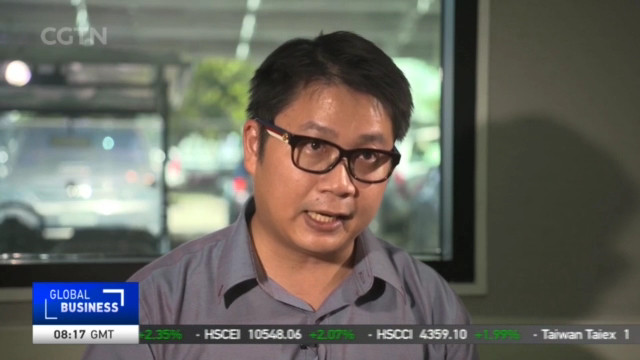
16:53, 10-Jun-2019
US-China Trade War Impact: Multinationals may shift their supply chains out of China
Updated
18:10, 11-Jun-2019
03:35

The trade war between China and the US is pushing many global companies to rethink their supply chains. As a result, Thailand is a country that stands to benefit from this shift. Foreign direct investment in Thailand amounted to $3.3 billion in the first four months of this year, up from $1.2 billion from the same period last year, according to the last report by the BoI. With no end to the trade war in sight, the manufacturing shift out of China is likely to continue – and could redefine long-entrenched global trade patterns. Our correspondent, Dusita Saokaew reports.
It's a long weekend, but for several managers at Star Microelectronics, it was a regular working day. Their factory is running at full capacity. It's a snapshot of fresh business confidence as they capitalize on a rush of new orders. Star Microelectronics is a leading Thai electronics manufacturing services provider, producing the parts, which are then built into computers, electronics and smartphones. Lately, business opportunities has been great.
KORATAK WEERADAECHA, FINANCIAL DIRECTOR STARS MICROELECTRONICS "We've had many new clients from China contacting us and interested in relocating. We are negotiating with 2 companies that will increase our profits by more than 50%."
It's what industry experts say is the biggest shift in cross-border supply chains in almost 2 decades. The trade war between the world's two biggest economies is creating stiff competition to secure new facilities in neighboring countries and rebuild supply chains outside of China, home to a fifth of global manufacturing. In this competition to attract industries, Thailand may benefit from its geographic location – in the middle of Southeast Asia and with easy access to the sea – and also from positive historical ties with China.
DUSITA SAOKAEW AYUTTHAYA "Sales of serviced industrial land plots by major developers increased by 50% year-on-year in the fourth quarter of 2018. This growth reflects a sharp increase in foreign direct investment. It may be good news but Thailand faces a number of challenges to fully exploit opportunities from any long-term reshaping of supply chains."
SOMPRAWIN MANPRASERT EXECUTIVE VICE PRESIDENT & HEAD OF RESEARCH BANK OF AYUDHYA PCL. "When you open up for huge flow of investment, you need a lot of infrastructure. You need not only hard infrastructure but soft infrastructure or human capital as well. What is happening now is that it gives us more pressure and we have to act fast."
Yet the transition away from China is far from straightforward. The upshot is that China cannot easily be replaced. It is the world's biggest exporter for good reasons.
SOMPRAWIN MANPRASERT EXECUTIVE VICE PRESIDENT & HEAD OF RESEARCH BANK OF AYUDHYA PCL. "I think everyone loses in this battle. If you have trade protectionism it means you are not allowed, in economic terms, to efficiently allocate resource which means it costs deadweight loss to the world."
And ultimately, a classic Catch-22 looms. As Southeast Asian countries become wealthier, wages will rise and their cost advantage will fade. And with that, a balancing act stands as Thailand tries to find its footing in the complex web of uncertainty around the future of industries, politics and trade. Dusita Saokaew, CGTN, Thailand.

SITEMAP
Copyright © 2018 CGTN. Beijing ICP prepared NO.16065310-3
Copyright © 2018 CGTN. Beijing ICP prepared NO.16065310-3